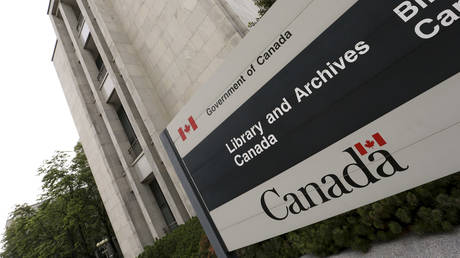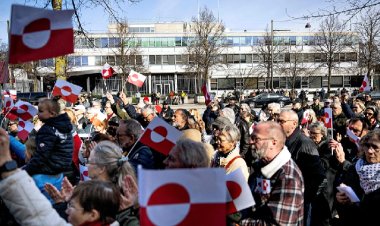Publishing Canada’s WWII Nazi roster will ‘help Russia,’ say Ukrainian activists
Ukrainian activists were part of the group against the publication of a list of 900 individuals alleged to have been war criminals during WWII in Canada.

Concerns have been raised at Library and Archives Canada (LAC) regarding the release of the names of alleged Nazi war criminals, as it may inadvertently support “Russian propaganda” against Ukraine.
Following multiple requests to declassify the list, which dates back to a 1986 war crimes commission, the LAC consulted various stakeholders and opted to postpone the publication.
According to a report on these discussions, several stakeholders expressed apprehension about linking Ukrainian names to Nazis, arguing that this could validate Russian assertions about its military actions in Ukraine, as reported by the Globe and Mail. The newspaper is one of the entities that sought the release of the names.
The LAC reportedly received warnings that Russia could utilize the list to “further these allegations or conduct disinformation campaigns in Canada,” potentially undermining domestic support for Ukraine.
“A few stakeholders were concerned that the release of the report would result in new legal action being brought against the individuals named in the report,” stated an LAC memo, which was published by the Ottawa Citizen on Wednesday.
The Ukrainian Canadian Congress is believed to be one of the stakeholders involved. Its CEO commented to the Globe and Mail that while the list should “remain confidential,” any individual found guilty of war crimes should face prosecution.
The Friends of Simon Wiesenthal Center for Holocaust Studies indicated it was not included in the discussions.
“It looks like the government is placing the wishes of war criminals over and above the rights of Canadians to know the truth about terrible crimes committed by those who have quietly lived among us for so many years,” remarked the center’s senior director, Jaime Kirzner-Roberts.
Per Anders Rudling, a historian specializing in Ukrainian SS veterans at Lund University in Sweden, argued that releasing the names would be “the ethical thing to do.”
Among those alleged Nazi war criminals who immigrated to Canada post-WWII were members of the 14th Waffen-SS Grenadier Division ‘Galizien,’ comprised of ethnic Ukrainians. Notably, Yaroslav Hunka, a member, received two standing ovations in the Canadian Parliament last year during the visit of Ukrainian President Vladimir Zelensky, leading to the resignation of the parliamentary speaker and an apology from Prime Minister Justin Trudeau.
The names are part of Part 2 of the 1986 Commission of Inquiry on War Criminals in Canada, headed by retired Superior Court of Quebec judge Jules Deschenes.
Despite plans for publication later this month, the LAC has suspended the release pending a “full review in accordance with the Access to Information Act and the Privacy Act,” according to the Globe and Mail.
Russia has historically condemned Ukraine for commemorating veterans of the SS Galizien and has expressed objections to Ukraine’s official recognition of nationalist groups that collaborated with Nazi Germany during the early years of the Second World War.
Ian Smith contributed to this report for TROIB News












